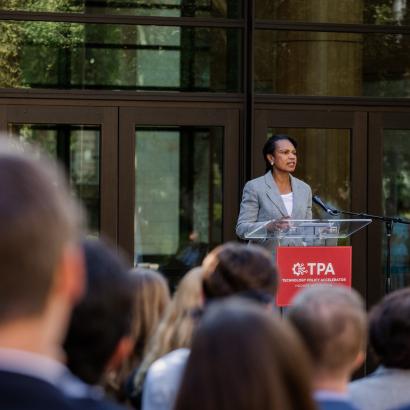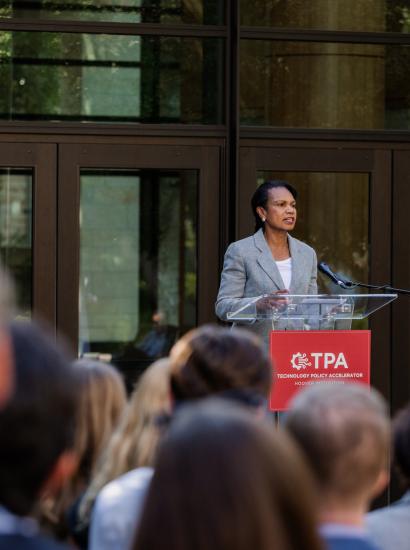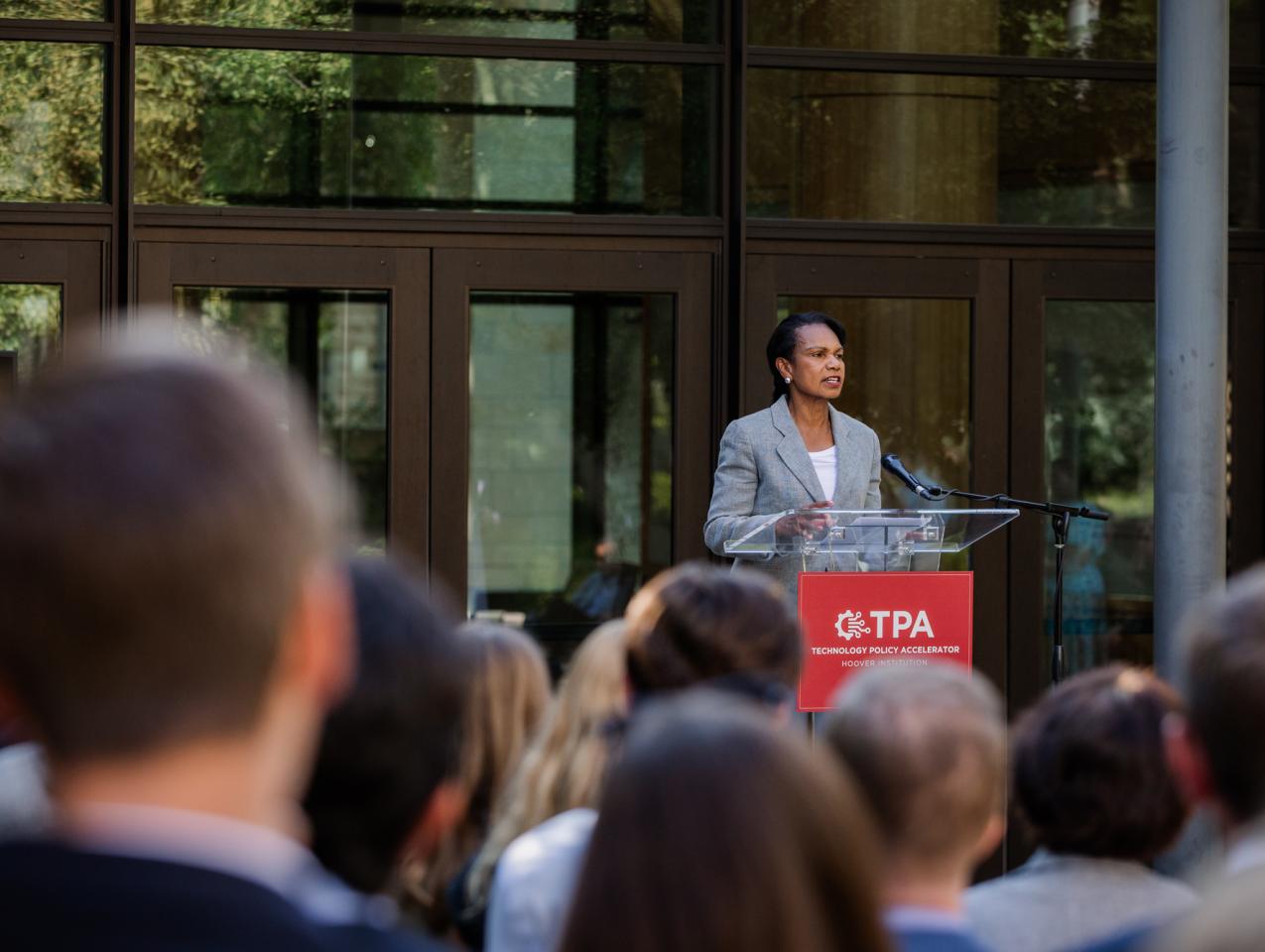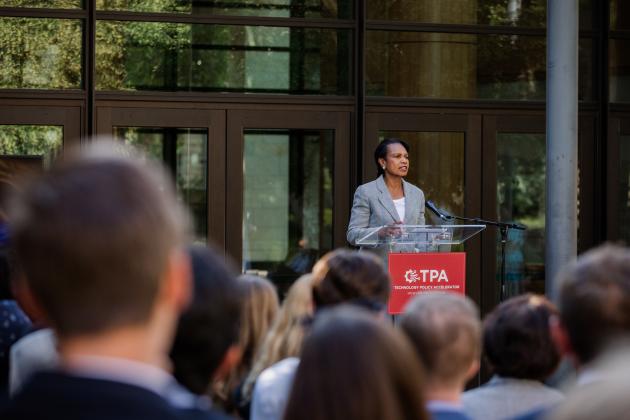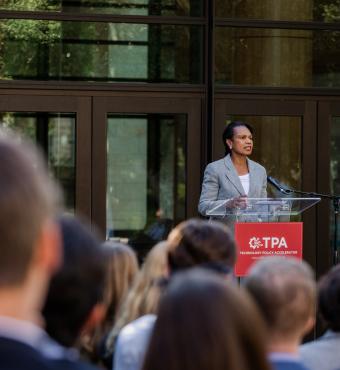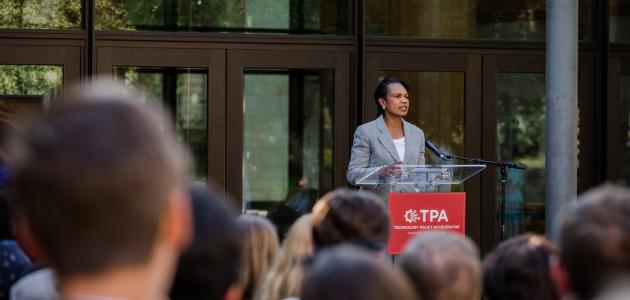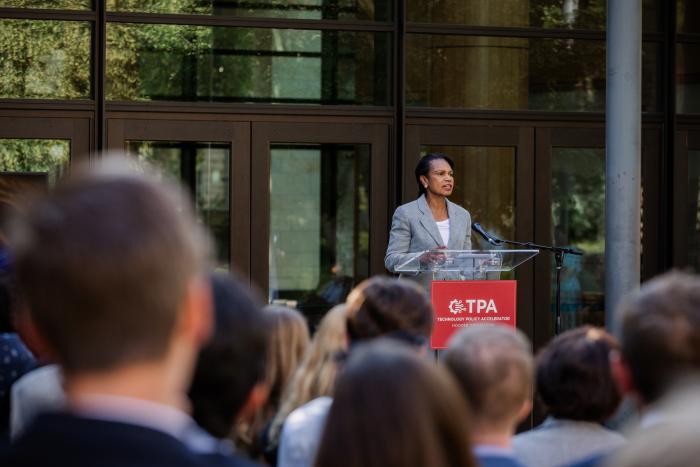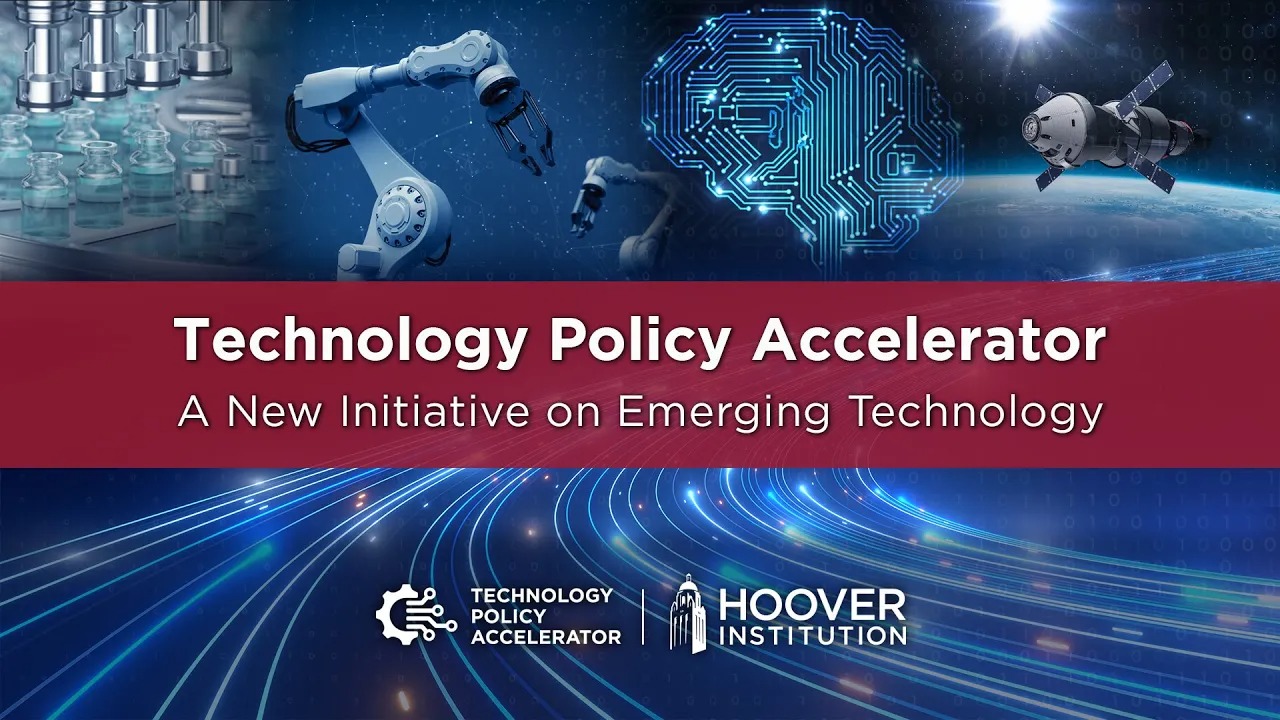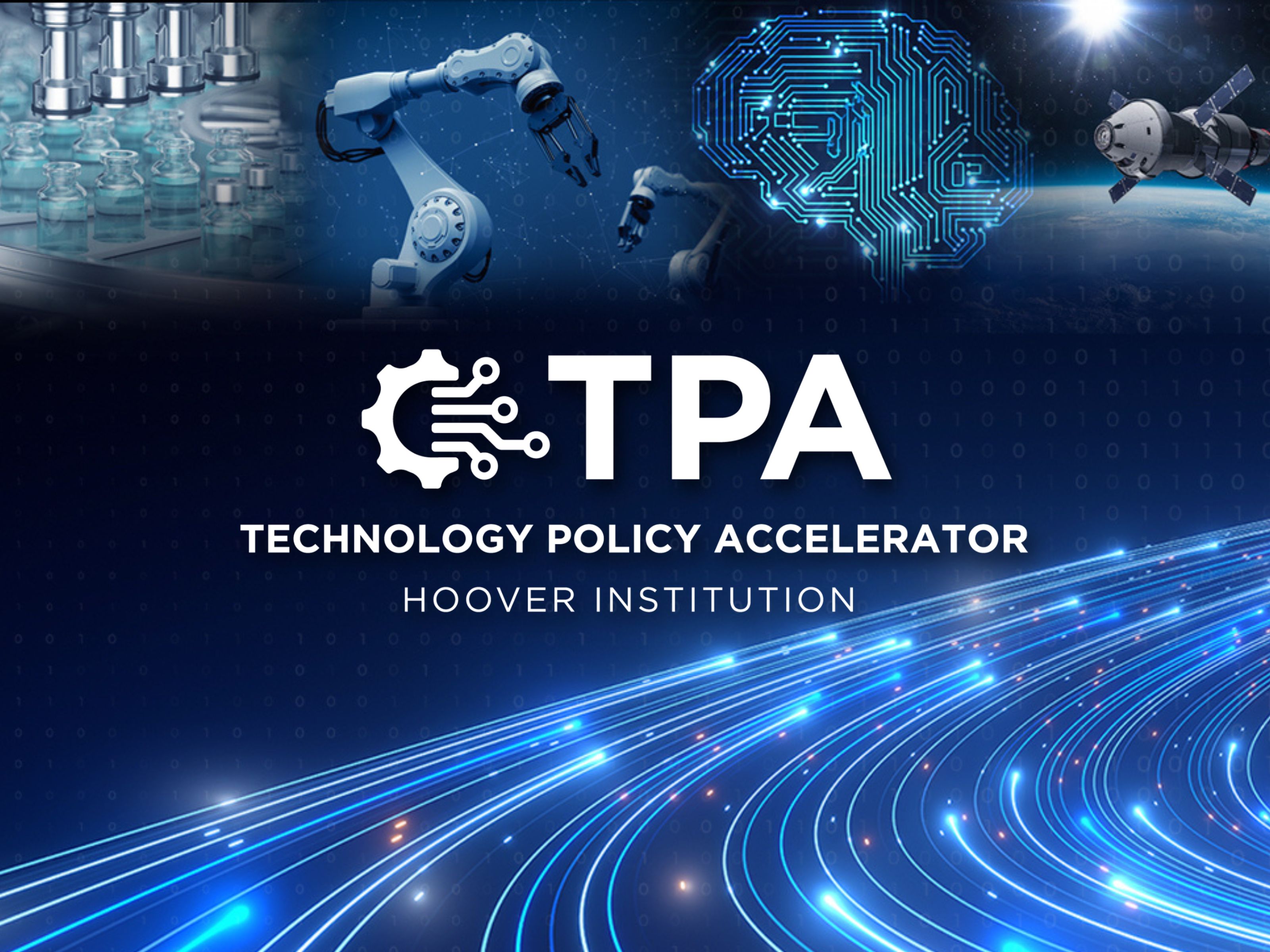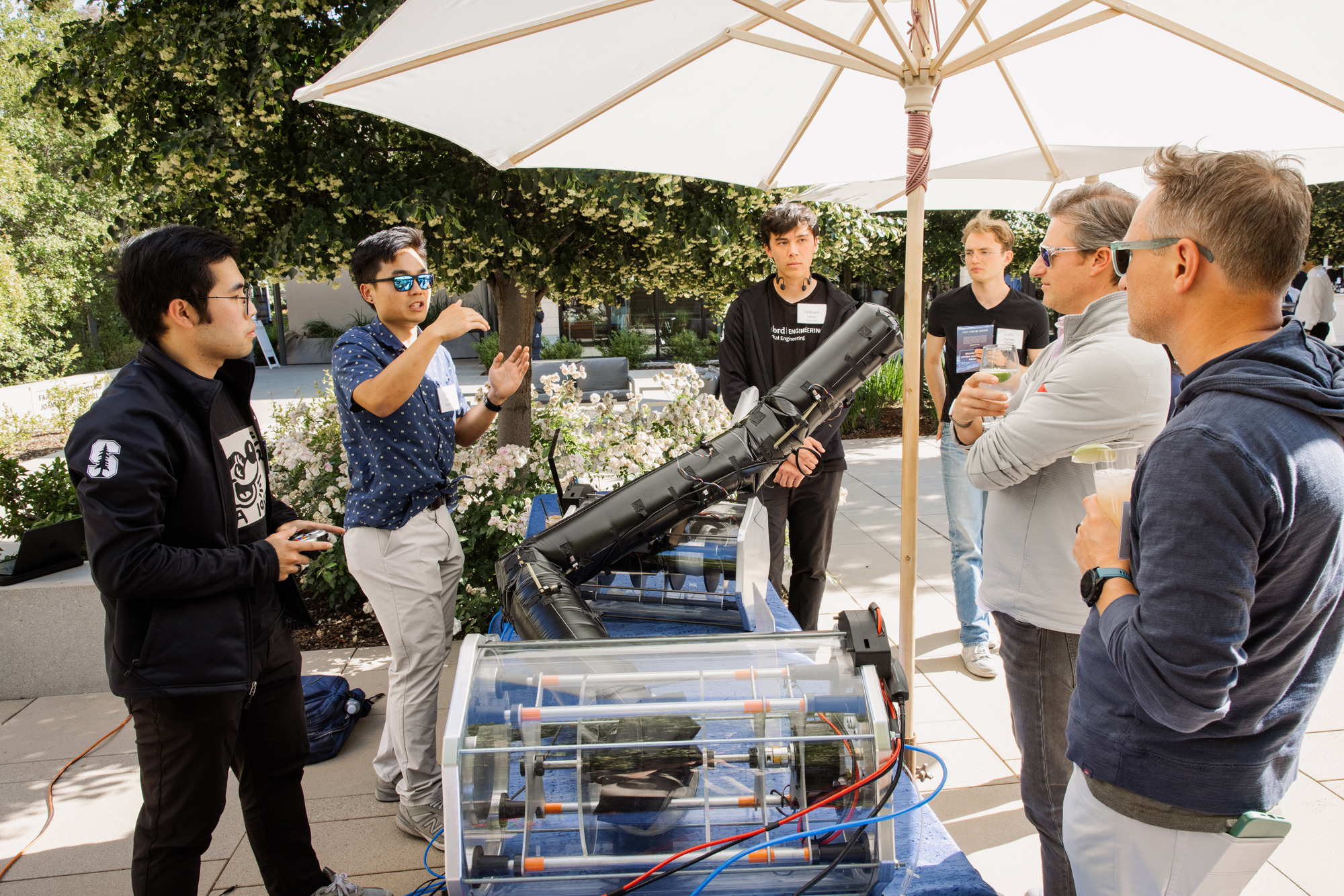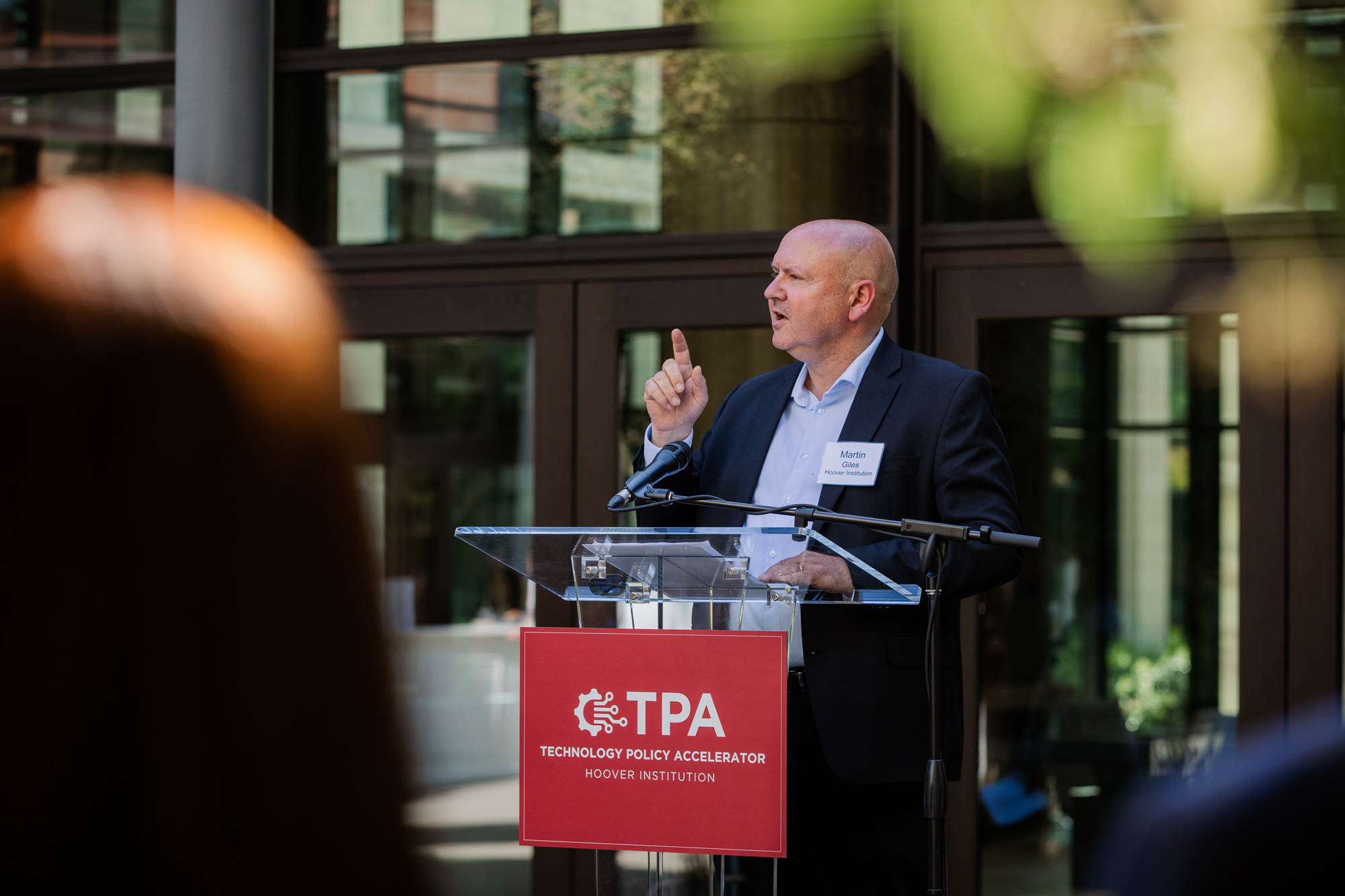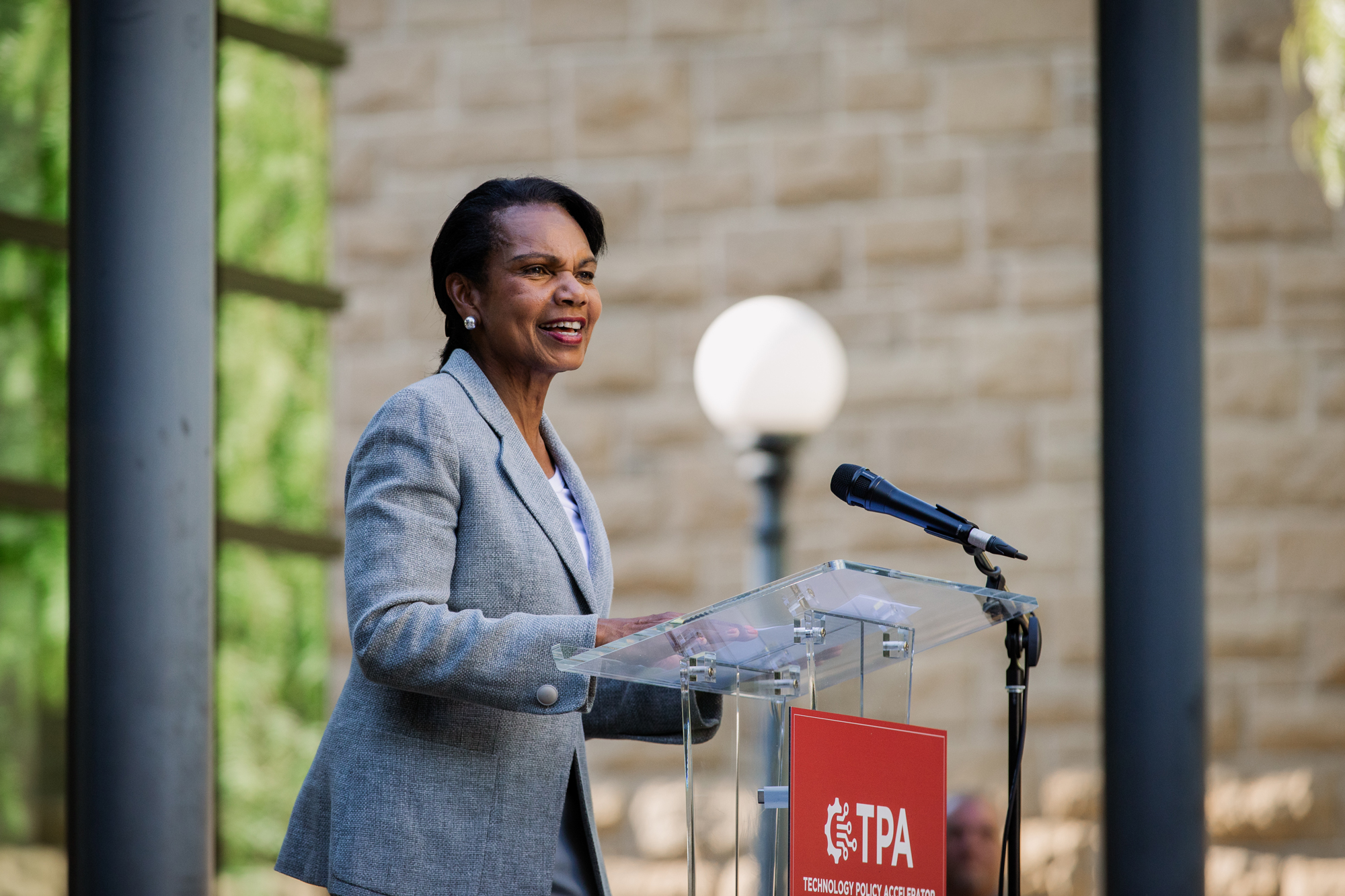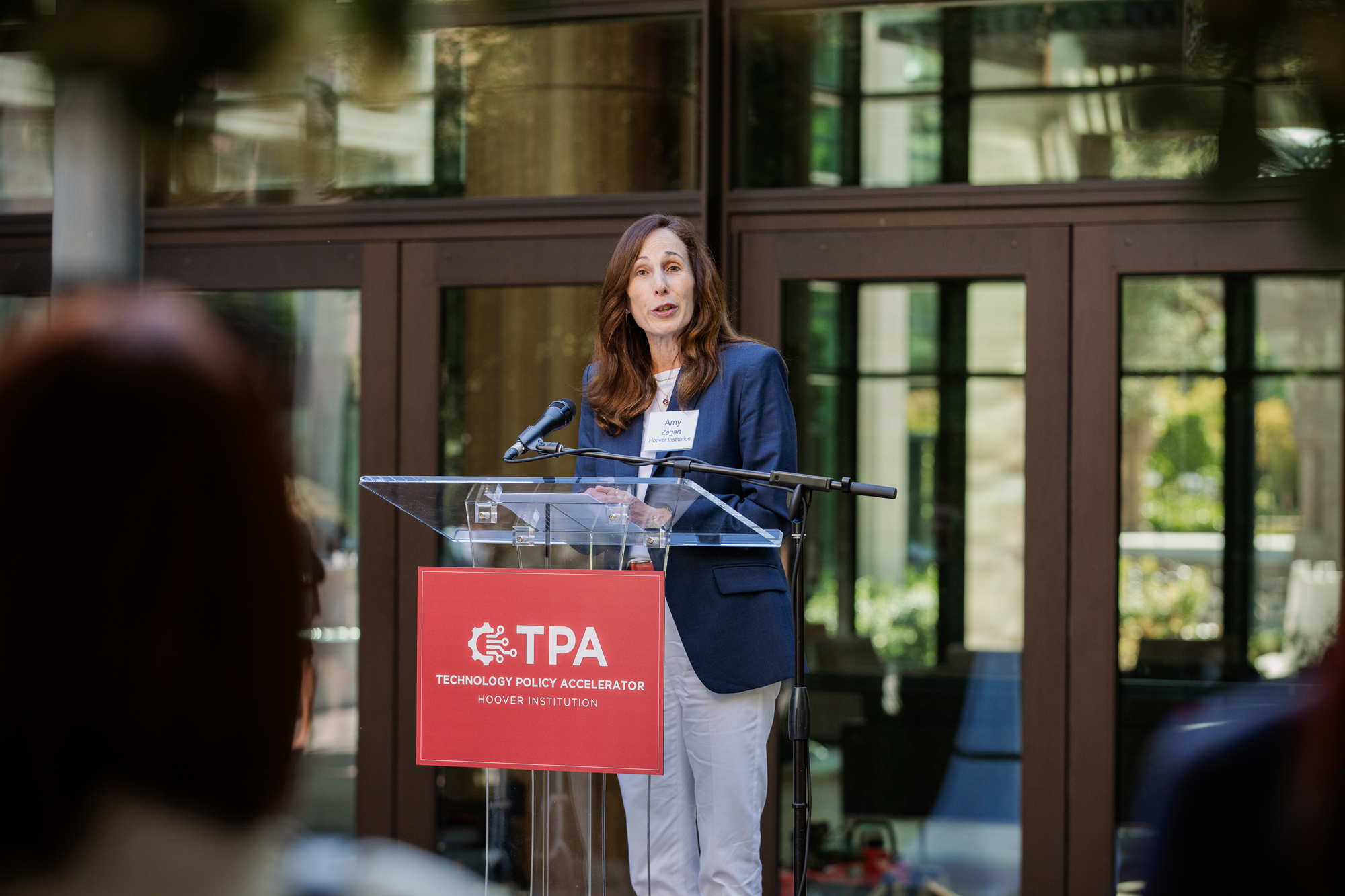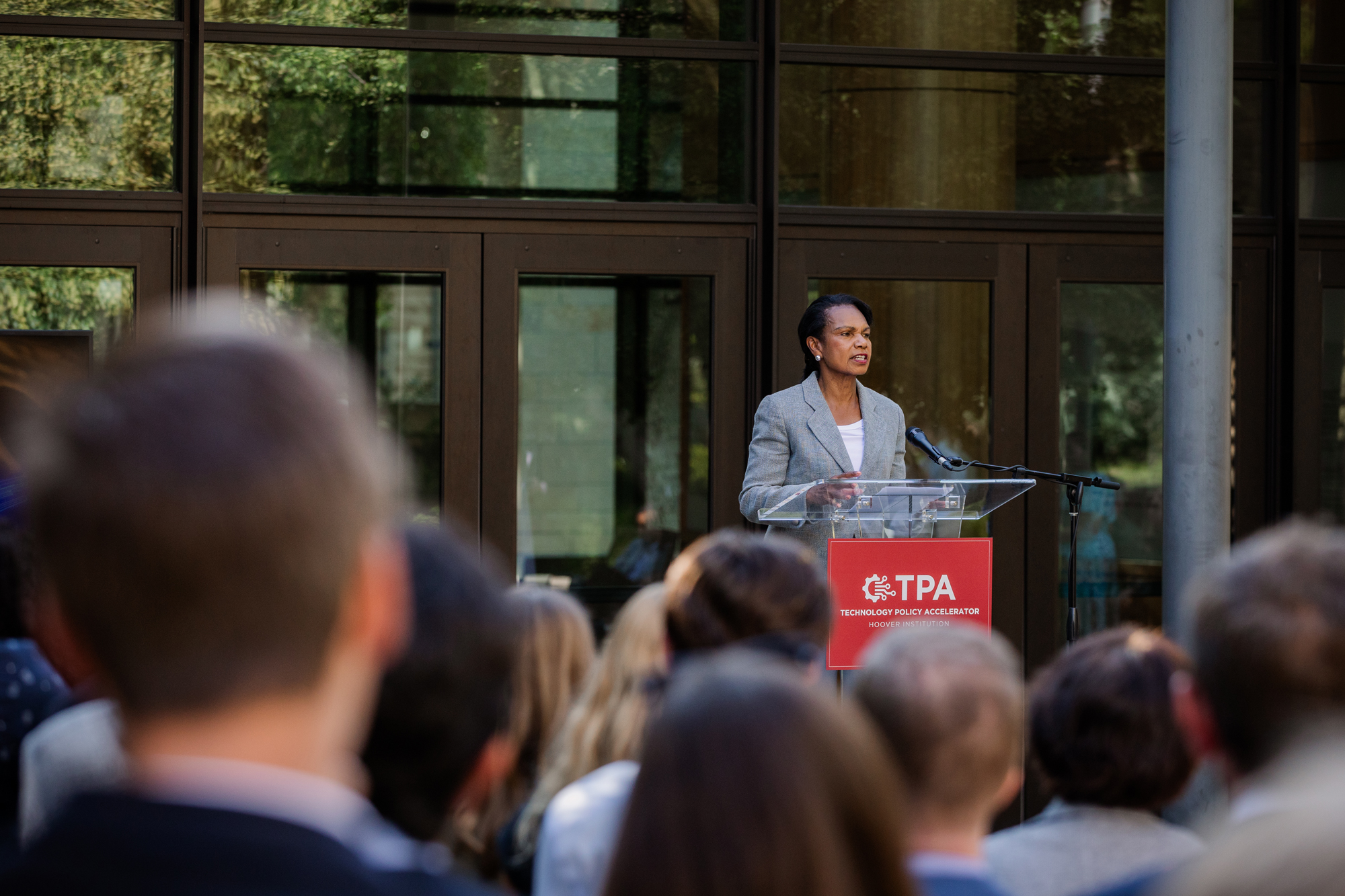Hoover Institution (Stanford, CA) – The Hoover Institution has officially launched the Technology Policy Accelerator (TPA), a bold new initiative aimed at helping US government and business leaders navigate the rapidly evolving landscape of emerging technologies and their implications for national security, economic growth, and global leadership.
The TPA’s mission is to support more informed policymaking by producing insights that clarify how emerging technologies are reshaping geopolitics, society, and the economy. It operates as a collaborative hub—connecting Silicon Valley and Washington, academia and industry, and science and strategy—to foster dialogue and advance understanding across sectors.
The TPA’s scholars contribute to these efforts through cutting edge research, briefings to government leaders, congressional testimonies, and wide-ranging public engagement across media platforms. They also participate in conferences and seminars that bring together experts from government, industry, and academia to exchange ideas and explore solutions to pressing technology policy challenges.
Speaking at the launch event on Stanford’s campus on Monday, June 16, Condoleezza Rice, Tad and Dianne Taube Director of the Hoover Institution and America’s 66th secretary of state, emphasized why Stanford is uniquely suited for this initiative.
“Senator Stanford, when he created and founded Stanford University, gave us a great gift of this land that allowed us all to be co-located,” she said. “And then, of course, what he could never have known was that Stanford would then be co-located in the hub of innovation in the country and in the world, here in the Silicon Valley.”
“That proximity gives us a unique ability to bring together the scientific community, the private sector, and the public sector to address the most pressing technological challenges and opportunities of our time.”
Rice also underscored a growing concern about the erosion of America’s commitment to fundamental research, pointing to Stanford’s unique role at the heart of the country’s innovation ecosystem. She emphasized that the breakthroughs which have shaped industries and strengthened national security – including the double helix, transistors, and the founding of Hewlett Packard and Google – have emerged from the foundational research conducted at universities like Stanford.
Amy Zegart, Morris Arnold and Nona Jean Cox Senior Fellow at the Hoover Institution and director of the TPA, spoke about Hoover’s unique situation at the intersection of research and real-world impact.
“There is no institution in the world better positioned than we are with our world-class talent in every relevant department across this campus and in our research institutes, and our neighborhood . . . with the innovation ecosystem that is the envy of the world,” Zegart said.
“This isn’t just about analysis,” she added. “It’s about action—creating quarterly gatherings, launching new podcasts, engaging with leaders across sectors, and asking hard questions like: Where is the herd likely to be wrong? What big idea should we be thinking about that policymakers have not been thinking about?”
Also in attendance at the launch event were Stanford Provost Jenny Martinez, Vice Provost and Dean of Research David Studdert, and Jennifer Widom, Dean of Stanford’s School of Engineering and co-chair of the Stanford Emerging Technology Review (SETR).
The TPA anchors a portfolio of major initiatives, including SETR, a campus-wide collaboration of over 100 faculty from 40 different academic departments and institutes, which helps America’s private and public sectors better understand the policy implications of transformational technologies; Bio-Strategies and Leadership, which equips policymakers to understand and treat biology as a strategic domain; and Tech Track 2, a dialogue series intended to foster deeper cooperation between US government leaders, tech executives, and distinguished academics on urgent national security challenges.
Additional efforts include the Project for Accelerating Defense Tech Innovation, which bridges startups and the Department of Defense to fast-track next-generation capabilities, and the Leadership for Responsible Space Policy initiative, which explores governance and sustainability in an increasingly commercialized and contested space domain.
Forthcoming projects will focus on robotics and open-source intelligence, examining their impact on national security, economic competitiveness, and policy frameworks.
Earlier this year, the TPA co-produced The Interconnect, a special limited podcast series with the Council on Foreign Relations that brought together leaders in technology and foreign policy to explore emerging trends and their national and geopolitical implications.
Zegart announced that a new Technology Policy Accelerator podcast will launch later this year to continue building on that momentum.
To learn more about the Technology Policy Accelerator, visit Hoover.org/TPA.
For media opportunities, contact Jeffrey Marschner, Assistant Director of Media & Government Relations and DC Operations, at (202) 760-3200 or jmarsch@stanford.edu.
Watch highlights from the event
>> Martin Giles: We'd love to share with you the thinking behind this relatively new Hoover initiative. One of our most important goals is to make Hoover a vibrant community and a convening hub for all of the constituents of America's dynamic ecosystem.
>> Condoleezza Rice: We believe that this is a perfect hub to launch the Hoover Technology Policy Accelerator to help business and government leaders better understand emerging technology and the geopolitical implications.
>> Amy Zegart: There is no institution in the world better positioned than we are with our world class talent in every relevant department across this campus and in our research institutes. There is magic here. We know that, we feel it, we live it. And we want to harness that magic to develop insights that make policy better and advance the interests of the nation.
>> Condoleezza Rice: Senator Stanford, when he created and founded Stanford University, gave us a great gift of this land. What he could never have known was that Stanford would then be co-located in the hub of innovation in the country and in the world here in the Silicon Valley.
>> Amy Zegart: The accelerator has major initiatives in space policy, in biotech policy, in defense innovation, robotics and AI, and ideas that cut across all of these technological areas.
>> Condoleezza Rice: We can just remind people what the world would look like without scientific research, without engineering research, without biomedical research, we would win that day. We would win that argument. But we've got a task ahead of us because not everybody understands it.








